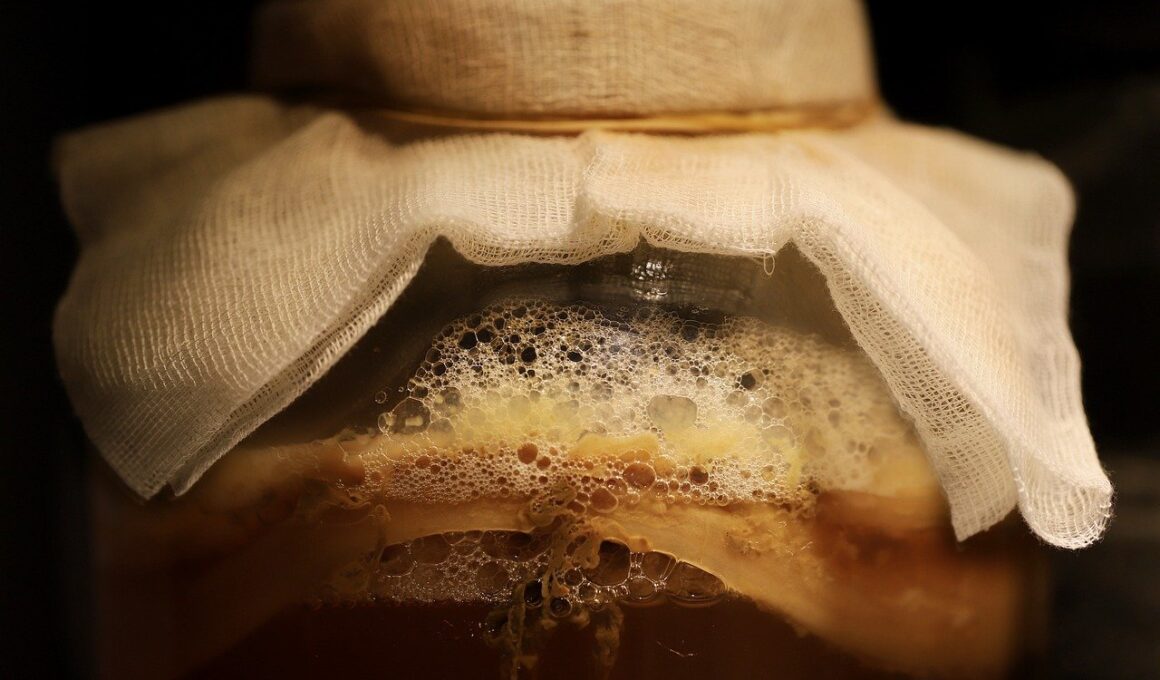Kombucha, the trendy fermented tea that has gained popularity, is known for various health benefits, from aiding digestion to boosting the immune system. But, is kombucha good for anxiety?
While no magical cure-all, there’s evidence suggesting that kombucha might have some benefits for mental health, including anxiety relief, thanks to its probiotic content and potential impact on gut health.

Understanding Kombucha
Before we dive into kombucha’s effects on anxiety, let’s get to know this bubbly beverage a bit better.
- What is Kombucha? It’s a fermented tea, traditionally made by fermenting sweet tea with a symbiotic culture of bacteria and yeast (SCOBY). This process produces a drink rich in vinegar, B vitamins, enzymes, probiotics, and a high concentration of acid (acetic, gluconic, and lactic), which are thought to be responsible for its health benefits.
- Probiotics and Gut Health: The probiotics in kombucha can help balance the gut microbiome, which is crucial not just for digestive health, but for overall well-being, including mental health.
Kombucha and Anxiety: The Connection
Now, let’s explore how kombucha could potentially benefit those dealing with anxiety.
The Gut-Brain Axis
- The gut-brain axis refers to the biochemical signaling that takes place between the gastrointestinal tract and the central nervous system. This relationship means that gut health can directly affect brain function and mood.
- Probiotics in Kombucha: By promoting a healthy gut microbiome, the probiotics in kombucha may positively influence the gut-brain axis, potentially leading to reduced anxiety levels.
B Vitamins
- Kombucha contains B vitamins, particularly B12, which have been linked to improved mood and mental health. B vitamins play a role in the synthesis of neurotransmitters like serotonin, which is sometimes called the “feel-good” hormone.
Antioxidants and Anti-inflammatory Properties
- The tea used in brewing kombucha is rich in antioxidants, which can combat oxidative stress and inflammation in the body. Oxidative stress has been linked to anxiety and other mental health disorders.
Potential Concerns
While kombucha might offer some benefits, it’s not without its downsides, especially for certain individuals.
- Caffeine Content: Kombucha is made from tea, which contains caffeine. Sensitive individuals might find that caffeine exacerbates their anxiety.
- Alcohol and Sugar Content: The fermentation process can produce trace amounts of alcohol. Also, some commercial kombuchas are high in added sugars, which could impact mood and energy levels.
- Digestive Distress for Some: Although probiotics are generally beneficial, for people with certain digestive issues, like IBS, kombucha might exacerbate symptoms.

How to Incorporate Kombucha for Anxiety Relief
If you’re considering adding kombucha to your diet for its potential anxiety-relieving benefits, here are some tips to do so safely and effectively:
Start Slow
- If you’re new to kombucha, start with a small amount to see how your body reacts, especially if you have a sensitive digestive system.
Choose Low-Sugar Options
- Opt for kombuchas with lower sugar content to avoid potential negative effects on your mood and energy levels.
Pay Attention to How It Makes You Feel
- Monitor any changes in your anxiety levels and overall mood. If you find that kombucha makes you feel jittery or more anxious, it might not be the right choice for you.
Consult with a Healthcare Provider
- If you have any underlying health conditions or are taking medications, it’s always a good idea to consult with a healthcare provider before adding kombucha or any other probiotic supplement to your routine.
Conclusion
So, is kombucha good for anxiety? It has the potential to be beneficial, thanks to its probiotic content, B vitamins, and antioxidants. However, it’s not a one-size-fits-all remedy. Individual responses can vary, and what works for one person might not work for another.
Like any dietary change intended to support mental health, kombucha should be considered as part of a broader, holistic approach to anxiety relief that includes a balanced diet, regular exercise, sufficient sleep, and, when necessary, professional mental health support.
Always remember to listen to your body and consult with healthcare professionals to tailor any health strategies to your needs.










